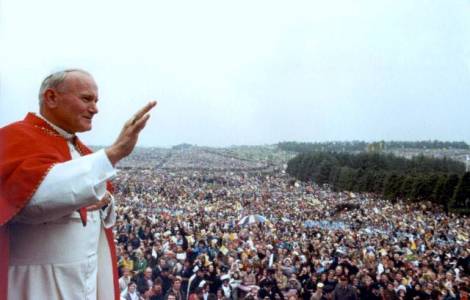
vaticanews
Havana (Agenzia Fides) - The 25th anniversary of the recognition of Christmas as a public holiday in Cuba and the 25th anniversary of the visit to the island of the Holy Father John Paul II, are the events mentioned by the Cuban Bishops in their message in preparation for Christmas, released yesterday, November 30th.
Coinciding with the announcement of the official program of John Paul II's visit to Cuba, from January 21 to 26, 1998, Fidel Castro announced on December 13 the reinstatement of the Christmas holidays for 1997. It was the Pope himself, during Castro's visit to the Vatican in autumn 1996, who asked for it as a gesture of goodwill, echoing the desire of the local Church. The last Christmas celebrated as a holiday on the Caribbean island dates back to 1968, when the regime decided to officially move the holiday to another date so as not to interrupt the sugar cane harvest.
"Christmas is always a new event - wrote the Bishops in their message in preparation for Christmas 2022 - because our personal, ecclesial and social situation is changing and, therefore, from this new perspective, we welcome the Child Jesus, who comes to share our lives, walk with us and teach us to live as brothers. This time, it will be 25 years since the Cuban authorities declared Christmas as a public holiday, which allows people to share this holiday with their families and participate in the celebrations in their respective communities".
The bishops therefore recall that immediately after Christmas, in January, it will be 25 years since the visit of Saint John Paul II, "an event that marked history and was a blessing for our people". To commemorate this "unforgettable visit", celebrations will take place in all the Dioceses starting from January 24, "in order to make present the teachings transmitted by the Holy Father during the four Eucharistic celebrations and other meetings
presided over by him".
"May Cuba open up to the world with all its magnificent possibilities and may the world open up to Cuba", said John Paul II upon his arrival in Cuba on January 21, 1978. For most Cubans, this was the first contact with this man, who came from afar, whose name they hardly knew. In his first speech, he specified the intentions of his pastoral journey: "I come as a pilgrim of love, truth and hope, with the desire to give new impetus to the work of evangelization which, in the midst of difficulties, this local Church carries out with vitality and apostolic dynamism on its way towards the third millennium".
"Where there is fear, mistrust, routine, lies and hatred, may Christ bring courage, hope, enthusiasm, truth and forgiveness – write the Cuban Bishops in view of the next Christmas -. The Church grows to the extent that each of us is able to take on the mission that Jesus entrusted us with true enthusiasm and commitment". A special greeting is addressed to families suffering from emigration, and an invitation to all: "Let us be more attentive, let us learn to look and listen, to recognize the signs that God puts before us every day, through which he guides us , encourages us or warns us of the dangers, but above all to discover how God manifests himself in reality, weaving our story with surprising closeness and respect, helping us to put the best of ourselves at the service of all".
The message then highlights the need to "reawaken joy and hope, in the midst of so much darkness and discouragement", and underlines that the feast of Christmas "if it fills us with joy, for the presence of the newborn, it also engages us in the life of our brothers and sisters, in the history of the Church and of our country". Finally, the Bishops invite us to welcome the light of Jesus' presence at Christmas, and also to accept the invitation "to be a light for our brothers and sisters, who need signs of hope that strengthen them to continue on the journey of life". Jesus teaches us that no one can do without a community, a community that supports us and in which we help each other to look to the future. "Dreams are built together. We are once again dreaming of building a homeland of brothers, where everyone can live in dignity, where we listen to each other and where we dialogue to discern the future, where we fight for the good of all, especially those who have been marginalized for various reasons". (SL) (Agenzia Fides, 1/12/2022)